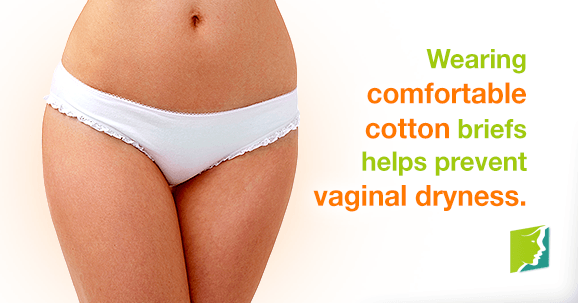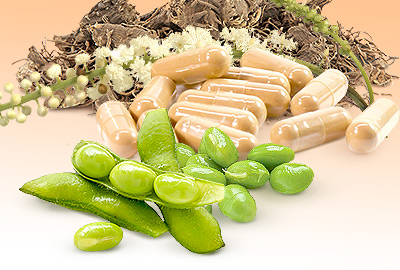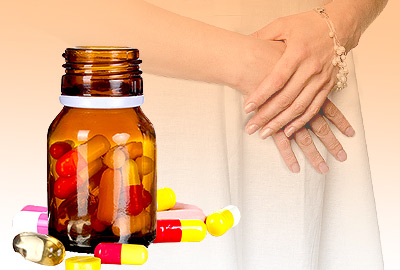Menopausal vaginal dryness affects many women in their forties and fifties. Itchy, painful, and downright unpleasant, menopausal dryness occurs due to hormonal changes in the body that cause the vaginal tissues to become thin and secrete less moisture. Not only generally uncomfortable, vaginal dryness can also cause painful friction during sexual intercourse and ultimately lead to a loss of libido. Vaginal dryness should not have to be a permanent part of any woman's life, there are a wide range of solutions that can help.
Water-Based Lubricants
Many women avoid sex when they have vaginal dryness, but regular sex is actually a natural treatment for the condition. When a woman is aroused, blood circulation to her vaginal tissues increases, which stimulates the secretion of moisture there. Unfortunately, having vaginal dryness in the first place can make having sex seem unappealing.
To counter this, try incorporating a water-based lubricant into foreplay with your partner. This will instantly relieve dryness to enable comfortable penetration while moisturizing the vaginal tissues. For your comfort and enjoyment, it's also important to ensure you are fully aroused before penetration of any kind. Plenty of caressing, kissing, and oral stimulation can help with this; encourage your partner to think of sex as an opportunity for you to explore and enjoy each others' bodies, rather than rushing towards the end goal of penetration.
Natural Oils
Olive oil and coconut oil are both natural lubricants that can relieve dryness when applied topically to the vagina. These oils nourish and moisturize the vaginal tissues because of their antioxidant vitamin E content, helping to stimulate the natural secretion of moisture in the vagina.
Different Underwear
The underwear you wear during can exacerbate vaginal dryness. Clingy styles and synthetic fabrics - such as thongs, lacy or silky underwear, or underwear that is just ill-fitting - restrict air access to the vagina, which can intensify dryness, cause bacteria to accumulate, and result in infection. Wear comfortably-fitting briefs in gentle fabrics, like cotton, to prevent aggravating vaginal dryness.
Gentle Washing
Menstruation and sexual intercourse are natural experiences and the vagina self-cleans itself. However, society promotes beliefs that vagina are unclean or should not smell like a vagina. This can lead to harsh intimate washing techniques, such as vaginal douching and the use of shower gels, fragranced soaps, and body washes, which are not just unnecessary, but can also trigger or exacerbate vaginal dryness. Simply using lukewarm water is sufficient to wash the vagina.
Though vaginal dryness may be an uncomfortable topic to discuss, try to be open with your partner about what you are experiencing. Your partner should be understanding and patient as you find a solution for vaginal dryness that works for you. Natural treatments can greatly help to reduce vaginal dryness, but if they don't help to the extent that you need, it is important to consult your doctor about further treatment options.
Sources
- Better Health Channel. (2013). Menopause and sexual issues. Retrieved April 1, 2014, from http://www.betterhealth.vic.gov.au/bhcv2/bhcarticles.nsf/pages/Menopause_and_sexual_issues
- National Health Service UK. (2012). Sex after the menopause. Retrieved April 1, 2014, from http://www.nhs.uk/Livewell/women4060/Pages/sex-after-the-menopause.aspx
- Zieve, D. (2011). Vaginal dryness: MedlinePlus Medical Encyclopedia. Retrieved April 1, 2014, from http://www.nlm.nih.gov/medlineplus/ency/article/000892.htm




